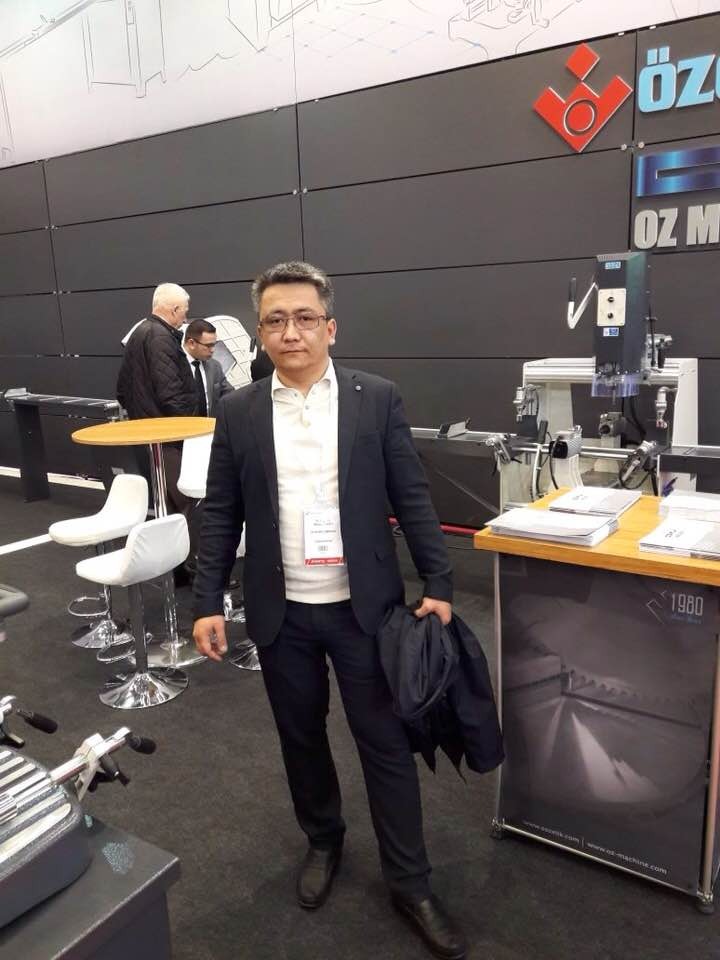
It is not easy to unequivocally assess the state of the construction industry in Kazakhstan, there are opposite poles. On the one hand, companies in the private sector invest massively in technologies and equipment and they get the corresponding results - accelerating the pace of construction and improving the quality of work. This is not the case in the state-building sector. Everything rests on the issue of financing - this is the cost of building materials, construction and installation work, in general, the entire process from the beginning to the completion of the project. The main problem of the public sector is that the project itself is approved and signed, coordinated 2-3 years before the actual start of the project, but almost always there are questions of revision, re-approval, re-registration and as a result the project is delayed. During this time, economic conditions have changed: the dollar / tenge exchange rate has changed, inflation is growing, and as a result, all the materials that are needed for construction become more expensive, we buy almost everything we need abroad, we do not produce much in Kazakhstan. Low efficiency, timeliness, bureaucracy - all this ultimately slows down the work on the project.
Another problem is the policy of the construction companies themselves. It often happens that a new company is opened in the private sector and the management recruits employees of low or even low qualifications for low wages. Of course, this approach yields as a result, and problems in the quality of work and the timing of the project itself are stretched.
For the last five years, we have been trying to introduce new technologies, but problems with red tape on the project and problems with the level of qualifications of personnel still slow down this process. It cannot be said that we do not have enough personnel, it is not the quantity, but the quality and, first of all, the quality of personnel training. If you look at the examples of Canada or the United States, or remember how specialists were trained in the Soviet Union, then upon graduation, a graduate, for example, a future foreman, he already had a real working internship under his belt just as a foreman, and not as a handyman at a construction site. During the internship, the master teaches the trainee and shows how everything works in production; at the end of such an internship, the future graduate already has qualifications and real work experience. Nowadays, such a situation often occurs, the employees who are hired have neither practical experience nor good knowledge, and out of ten hired only one may turn out to be sensible. Problems with the qualifications of employees inevitably lead to an increase in the construction time and disruption of the entire work cycle, because you have to spend time correcting mistakes made, and this also leads to an increase in the cost of the entire project.
In order to introduce new technologies and use new generation equipment, trained personnel are needed. in this regard, BI Group should be noted. they train their specialists, not contractors, but their own foremen, foremen and so on.
Yes, they have a school, short-term and long-term courses. For other companies, training takes place in reconnaissance mode, everything has to be learned right in the process, so that the work is of high quality and at the same time economical. If we talk about the introduction of new products into production, then often foreign partners help Kazakh companies. For example, in our company we update all equipment, technologies, tools every two to three years. And if we do not know something, then we turn to our partners in Turkey for help, they have a plant for the production and processing of plastic and aluminum profiles. A specialist comes to us who trains our employees right in the shop for about two weeks, then he takes an exam to check how the skills were learned by our employees. We turn to our Kazakhstani companies, tool suppliers, they also teach our employees, usually it takes no more than one day. Of course, using innovations is always a certain risk, but if you do not take risks, then there will be no results. A person is always ready for changes if there is confidence that the changes will be positive and will bring profit in the end.
Professions of a certain level, for example, operators, small assemblers, welders, installers, may lose their relevance over time. As for the designers who make calculations for certain materials, they can also leave the scene, as they say, if you use Revit Autodesk or ArchiCAD Graphisoft and other programs correctly. These programs have not yet reached us in full, although they have been used in the world for over 20 years. It is easier for foremen on construction sites to use AutoCAD, and they do not know how to use other digital tools. For example, if you take any construction project in the industry average, which has one project manager, two site managers and 4-5 foremen, each of them must have computers with Revit or ArchiCAD for everything to work correctly at the construction site.
